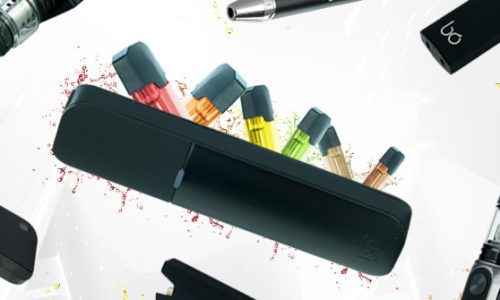Taweez was once used to treat snake bites and scorpion bites. The ancient prayer is still used in Silicon Valley to prevent migraines, bad marriages, and depression.

Some people believe that the Muslim practice of taweez prayers has died in the Bay Area. However, others are showing it to be false. Although it is not well-known, the ritual is used regularly in Bay Area living rooms, mosques, and rented halls.
Taweez, which is considered a spiritual and even mystical practice, is not suitable for all people. It has a small audience even among Muslims. Believers may drink water with passages from The Koran, or wear amulets that contain holy words. They pray that God will protect them.
Spiritual healing transcends culture and class and shows that even in times of despair faith can be a source of strength.
“You cannot go to the doctor and say that you have black magic. Can you give me Tylenol?” FeraidoonMojadedi (37), Fremont resident, who claims a strong Islamic lineage from Afghanistan and whose uncle was a spiritual master, said, “I need a taweez.” You need a Taweez.
Taweez is an Arabic word that means “protection” and is very popular in India, Pakistan, and Afghanistan. The practice is particularly popular among Afghans. At least 20,000 have fled their homelands to live in Fremont. In war-torn Afghanistan, there have been more mullahs and doctors than ever before. Today, it is difficult to live a normal life in Silicon Valley. Many people suffer from health issues, can’t speak English well, and have low-paying jobs.
Two suspects were able to get help with taweez prayers last year, but police and media paid little attention. Family members say OmeedAzizPopal, a 29-year-old Afghan-American accused of running over 18 people in San Francisco with his SUV and killing one Fremont man in Aug, sought taweez to overcome his mental illness. He sought out help from Western doctors.
Prosecutors also claimed that Hamid Hayat (23-year-old Lodi man from Pakistan, convicted of supporting terrorists and lying about the FBI) was a jihadi fighter partly because they found a Taweez prayer card inside his wallet. However, a defense witness testified that the Arabic phrase “O Allah, they place you at your throats and seek refuge in them from their evil” is very popular among many Muslims, particularly travelers.
“I went once to do taweez to my sister who is cancer-free,” said Fremont Afghan immigrant. She asked not to be identified because she doesn’t want her friends to learn that she believes in supernatural healing powers. “I don’t know if it worked but her cancer hasn’t grown. It was my hope that it would help.
Spiritual healing beliefs are universal. American Indian tribes have relied for centuries on medical professionals. To ward off evil, some Hindus use charms to bring good fortune and mark their faces with charcoal. Mexican-Catholic custom of milagro (or “miracle”), worshippers bring a decorative figurine to a saint and promise that they will be blessed with good fortune if they are.
Paul Parker, professor at Elmhurst College in Illinois, said that “Humans can solve problems.” “And when we are in need, most people turn to a greater power than ourselves for help. We turn to a transcendental power if our lawyer or physician can’t solve the problem. Which power is the greatest? God.”
Ahmad SaedMojaddedi (65), a religious leader in Alameda, immigrated from Afghanistan during the 1980s. He said that about 10 people come to him each month seeking taweez. Mojaddedi, a religiously-trained elder, wore a long, white beard and wore a camel-colored, fez. His nephew translated from Dari.
People want him to address two of the most pressing issues: unemployment and rocky marriages.
Mojaddedi explained that the formula for determining the Koran’s proper scripture is precise and comes with personal counseling and encouragement. Mojaddedi will offer a glass water infused with a passage of the Koran in saffron-ink to someone who has a mental problem. Mojaddedi scans the Koran to find the right verse and writes it down. He wraps it in white cloth, then tells the troubled soul that they can wear it. Sometimes, it is tucked into an amulet.
He said, “This is not guaranteed.” It’s all in God’s hands. It works sometimes, and it doesn’t always. It all depends on what the individual believes.
Taweez, Mojaddedi stated, is so personal and sacred that it’s more personal than visiting a therapist or doctor. People who seek this help are often reluctant to share it with others. Mojaddedi stated that a true taweez should not be exchanged for money, but that he is often thanked with small gifts or chocolates.
Taweez circles are fraught with controversy. There will always be quacks who charge outrageous fees and make promises that they can’t keep. Although the ritual can be used for evil, a few of the Bay Area’s legitimate practitioners of taweez say they don’t believe in “black magic”.
Three Bay Area practitioners explained that in order to properly administer taweez the adviser must be “spiritually licenced” by a master who trains or gives permission for others to bless them.
Fremont Afghan businesswoman, who requested that her name not used as she did not want her daughter to see it, paid $200 for a Taweez. She didn’t realize it was wrong for her to be charged a charge.
She said, “My daughter wanted me to marry him and I don’t like that man.” She was instructed to submerge one Koran passage in water and then bury the other at an old gravesite. The man was her son.
She said, “I went because it was desperately needed, but it didn’t help.” Although she believes that her practitioner was a fraud and would be willing to try again if a spiritual leader recommended her,
Mohamad Rajabally is a prominent dentist at Fremont’s largest Mosque and also serves on the executive council of islamic talismans Society of North America. He said that the ritual is most popular with uninformed villagers and elders. This is far from Silicon Valley’s majority of engineers and professionals.
AyyazYousaf (40), a San Jose-based software engineer of Pakistani descent who regularly offers taweez, challenges this stereotype. His Fremont hall is rented each Sunday night, and two dozen people from different socioeconomic backgrounds and parts of the globe come to receive spiritual counseling. He said that even non-Muslims are welcome. Once, a Sikh family had an alcoholic relative. After several weeks of drinking water infused with words from the Koran, Yousaf declared that the man had beaten the addiction.
Yousaf stated, “There are not too few people here who are fully conscious of the spiritual path.” “That’s all there is to it.”


